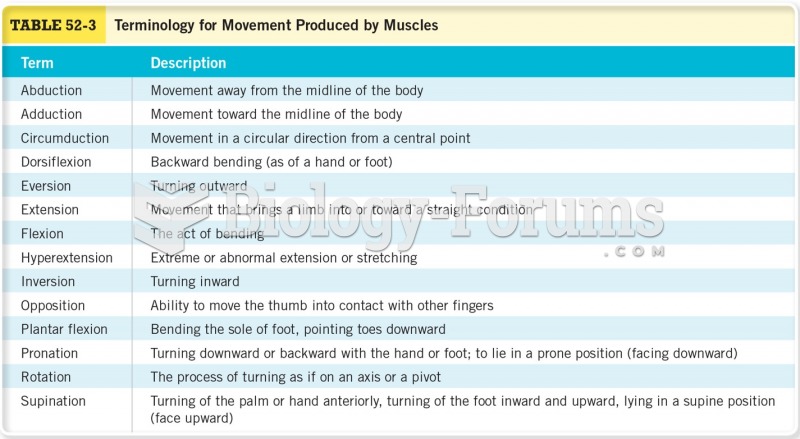This topic contains a solution. Click here to go to the answer
|
|
|
Did you know?
According to the Migraine Research Foundation, migraines are the third most prevalent illness in the world. Women are most affected (18%), followed by children of both sexes (10%), and men (6%).
Did you know?
The average human gut is home to perhaps 500 to 1,000 different species of bacteria.
Did you know?
Asthma is the most common chronic childhood disease in the world. Most children who develop asthma have symptoms before they are 5 years old.
Did you know?
Individuals are never “cured” of addictions. Instead, they learn how to manage their disease to lead healthy, balanced lives.
Did you know?
In 1844, Charles Goodyear obtained the first patent for a rubber condom.







